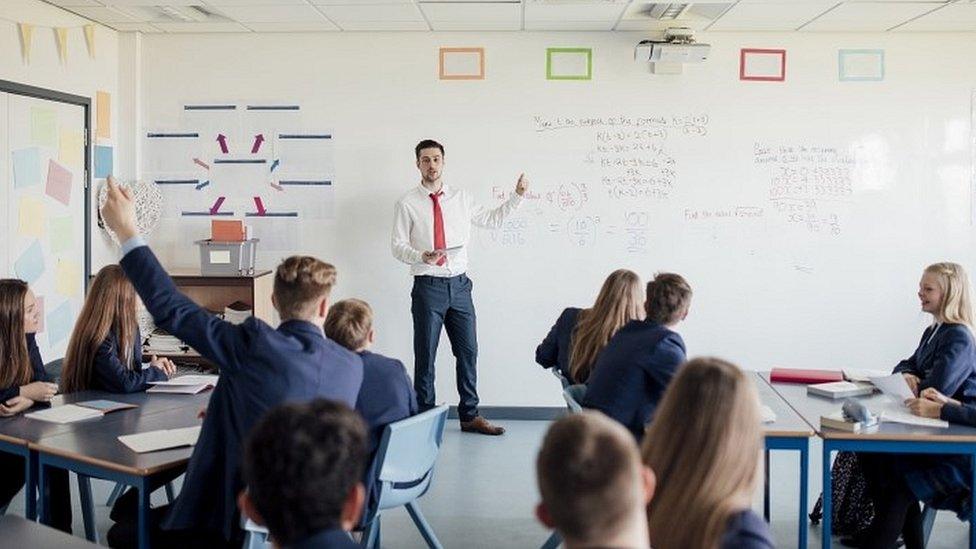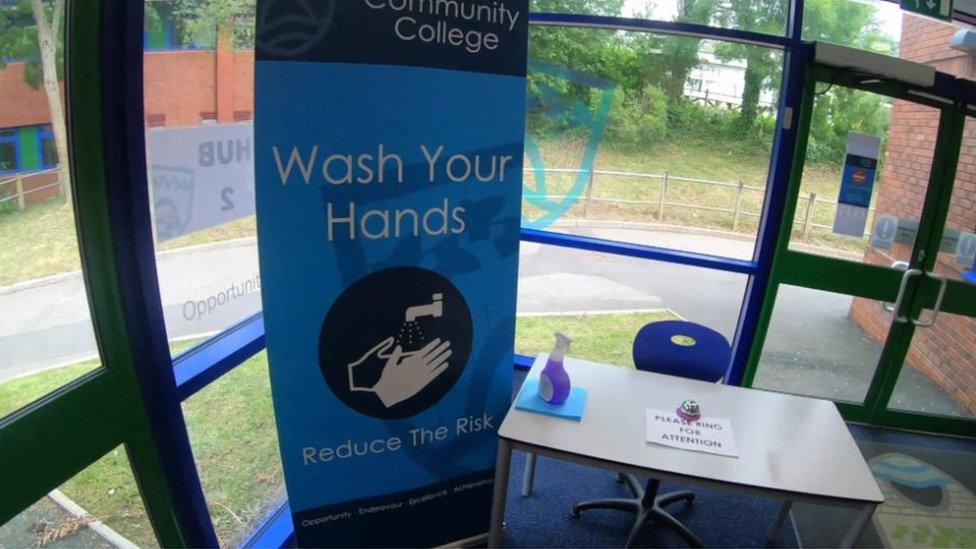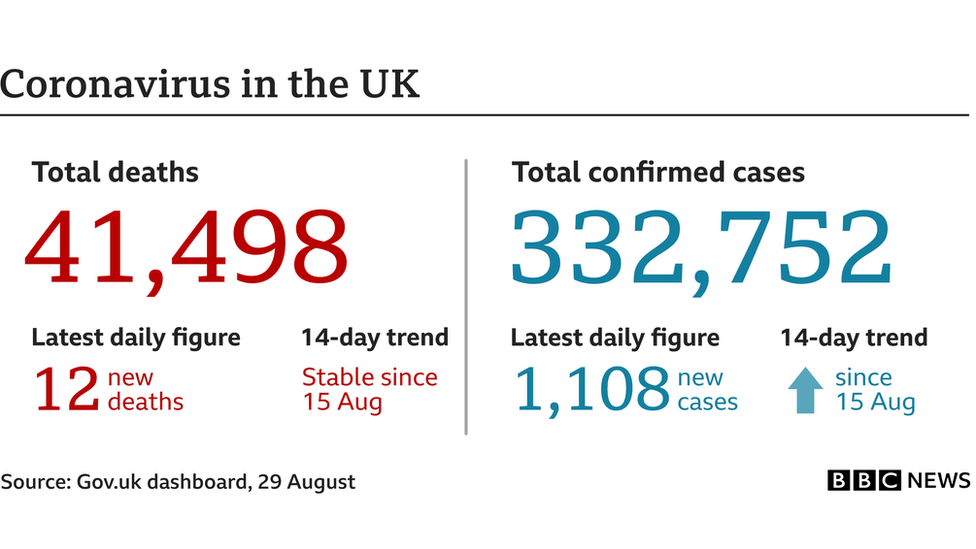Coronavirus: Life chances at risk if pupils don't return to school, Williamson says
- Published

Parents who do not send their children back to school risk putting a "huge dent in their future life chances", the education secretary has warned.
Millions of pupils in England and Wales return to the classroom this week.
Gavin Williamson has insisted in an open letter that schools are safe.
It comes after teachers criticised the government for publishing "last-minute" guidance on Friday evening detailing what to do during virus outbreaks and local lockdowns.
"If a child is not in school, they stand to lose far more than just a few months of learning. It could well put a huge dent in their future life chances," Mr Williamson said in his letter to parents.
"Education is a birthright, so let's make sure we get all children back - back to learning, back to playing and back to being kids again."
Mr Williamson said it was "generally accepted" that children's health and wellbeing were more at risk if they did not go to school.
He cited a joint statement by the UK's chief medical officers, which said "very few, if any" children and teenagers would come to long-term harm from Covid-19 solely by attending school.

Schools are preparing to welcome all pupils for the first time since March
The letter was published as the government faced criticism for the timing of its guidance sent to schools in England, just days before most children begin term.
The guidance said that, in local lockdowns, secondary pupils could be kept home every other fortnight and, in an outbreak, large groups could be told to self-isolate.
In his letter, Mr Williamson told parents the health risk posed to children by Covid-19 was "extremely low".
He said "huge lengths" had been gone to to prepare schools for pupils' return, including placing children in groups - or "bubbles" and requiring face coverings in communal areas of schools in areas where there were local lockdowns.
Adam Finn, professor of paediatrics at Bristol University, told BBC Radio 4's Broadcasting House: "I don't think that there is a single solution for everywhere and what's feasible in one place may not be feasible for another."
He added: "We do need to be a bit careful about this. Children are mostly asymptomatic and very, very seldom ill with this infection, but they do get it and they will be infectious to some degree."

Prof Finn also said: "It's a two-way business. To get infection, children have to pick it up in the community or from each other. The transmission that will go on in schools, which hopefully will be limited, will contribute to the overall transmission that's going on around.
"It's as important that we limit transmission outside of schools as it is that we limit transmission inside schools."
After the fresh guidance for schools in England was published on Friday, Labour's shadow education secretary, Kate Green, said it was "unfair" on head teachers to release it so close to the start of term.
The NAHT school leaders' union called the timing "nothing short of reprehensible", while the National Education Union said the details should have been available "months ago".
Schools in Scotland and Northern Ireland have already been allowed to reopen.

CHILDREN'S RISK: Study shows it is 'tiny'
GETTING ABOUT: Is it safe to use public transport?
BACK TO SCHOOL: Does my child have to return?


